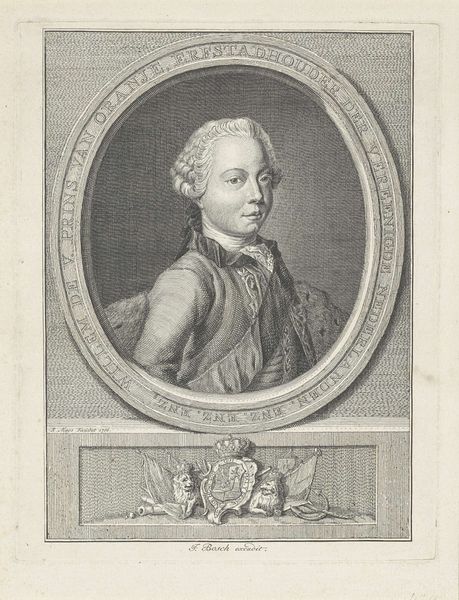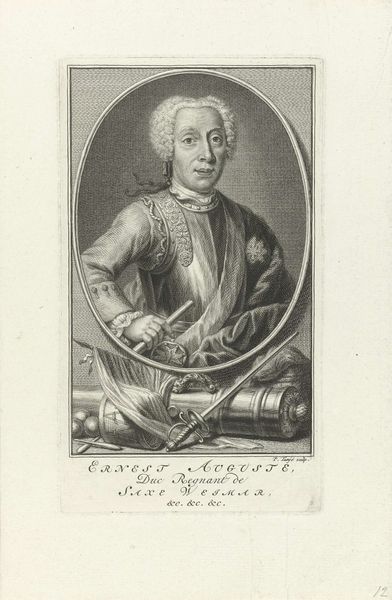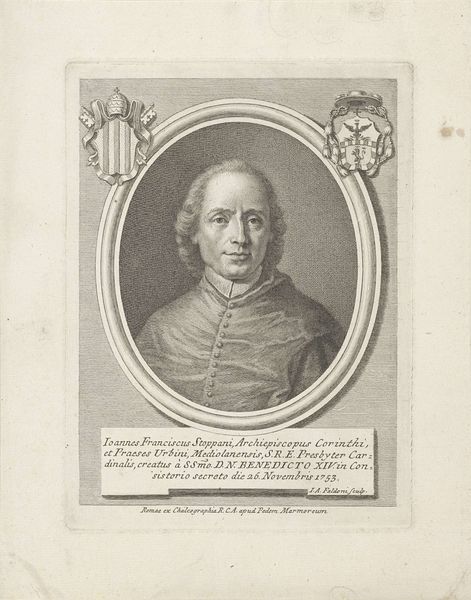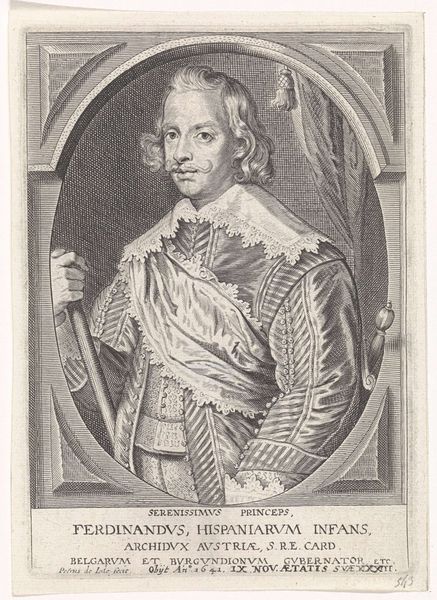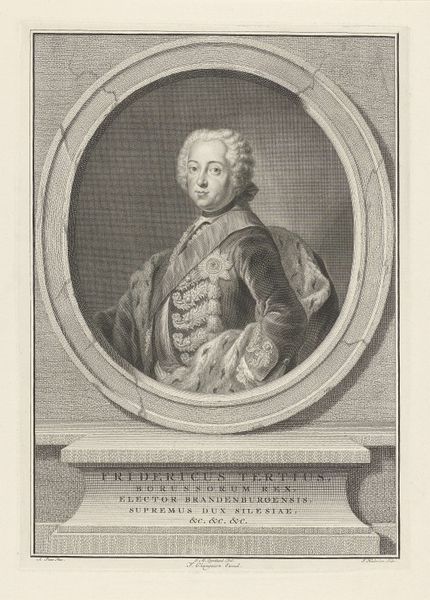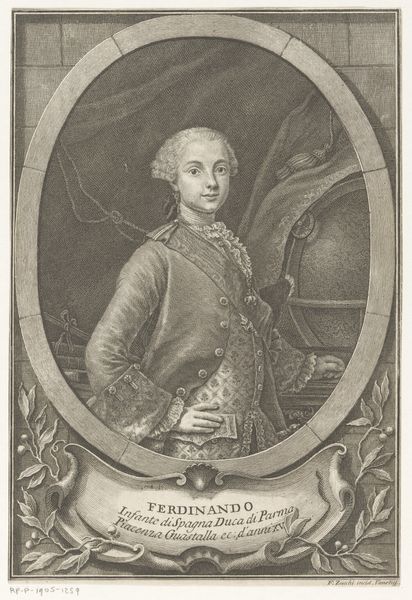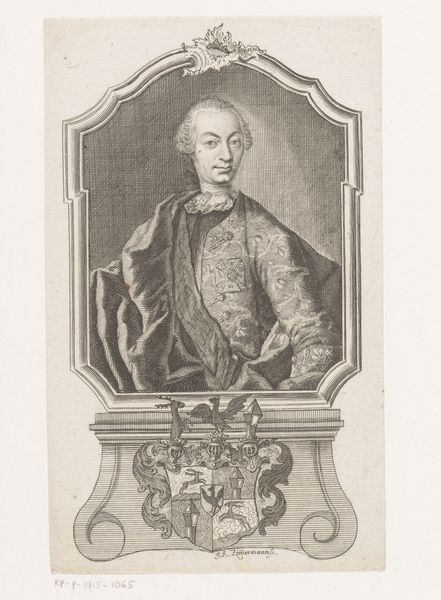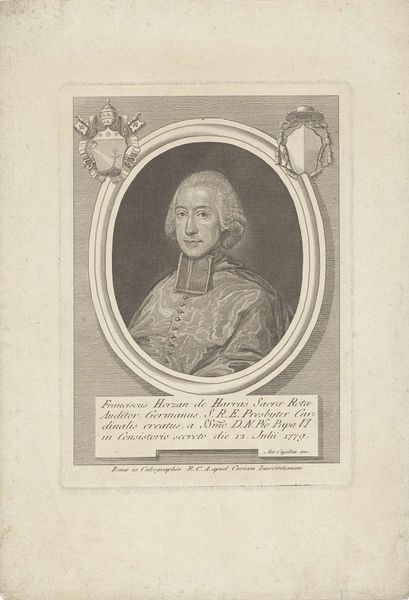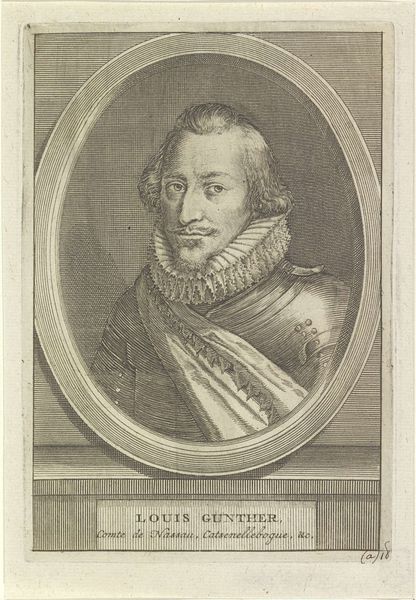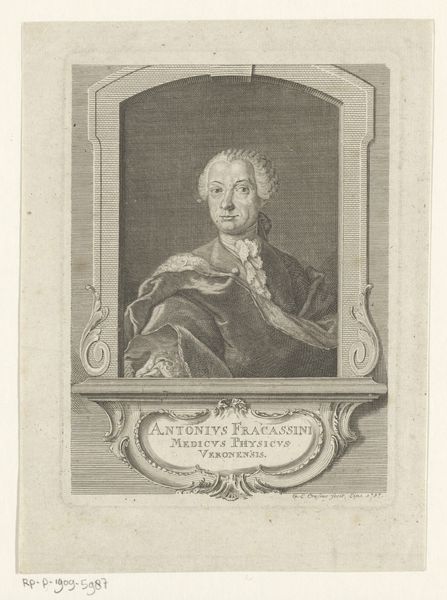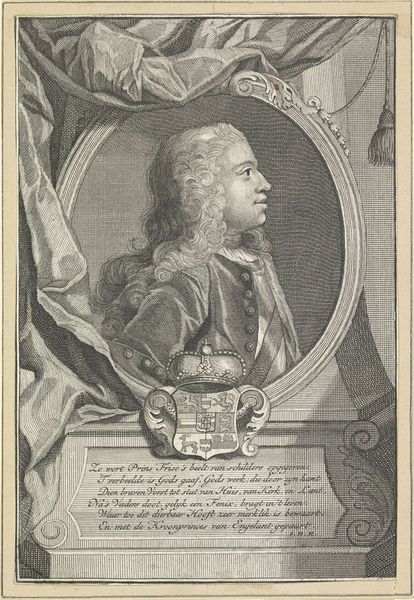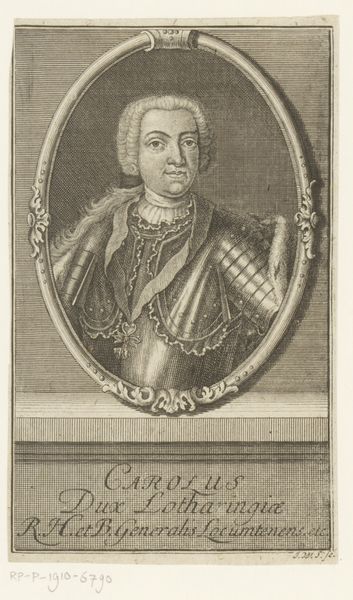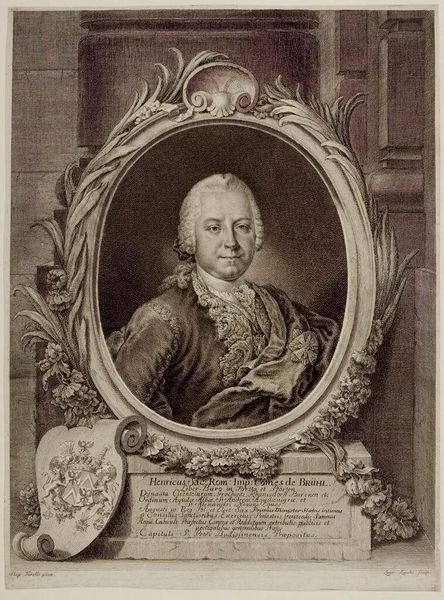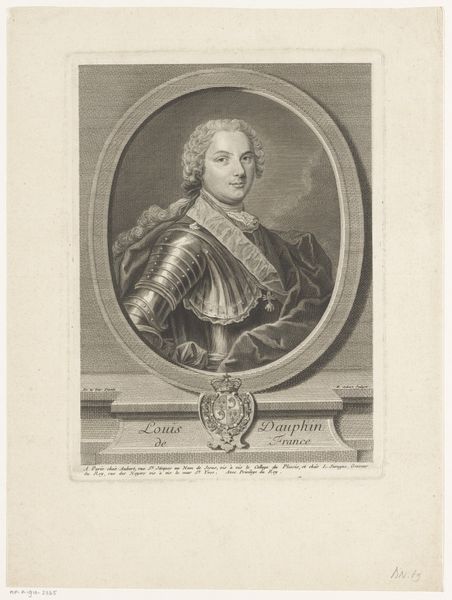
print, engraving
#
portrait
#
baroque
# print
#
old engraving style
#
history-painting
#
engraving
Dimensions: height 180 mm, width 134 mm
Copyright: Rijks Museum: Open Domain
This is Jacopo Cotta’s “Portret van Gioanni Sorbellone,” an engraving, a printmaking technique, made in the late 17th century. An engraving involves cutting a design into a flat surface, in this case a metal plate, with a tool called a burin, and then using ink to transfer that image onto paper. Look at the crispness of the lines, which give a remarkable sense of detail, especially in the armor and the sitter’s features. The process of engraving demands a high level of skill, with the artist working methodically, line by line, to build up the image. Each line, carefully etched, contributes to the overall texture and tone of the print. This wasn’t exactly mass production, but it was reproducible. Engravings were a way to disseminate images widely, playing a crucial role in spreading knowledge, political ideas, and artistic trends. The very act of making this print, with its reliance on skilled labor and a complex production process, reflects the burgeoning world of early capitalism. So next time you see a print, remember to think not just about the image, but also the work that went into bringing it to life.
Comments
No comments
Be the first to comment and join the conversation on the ultimate creative platform.
